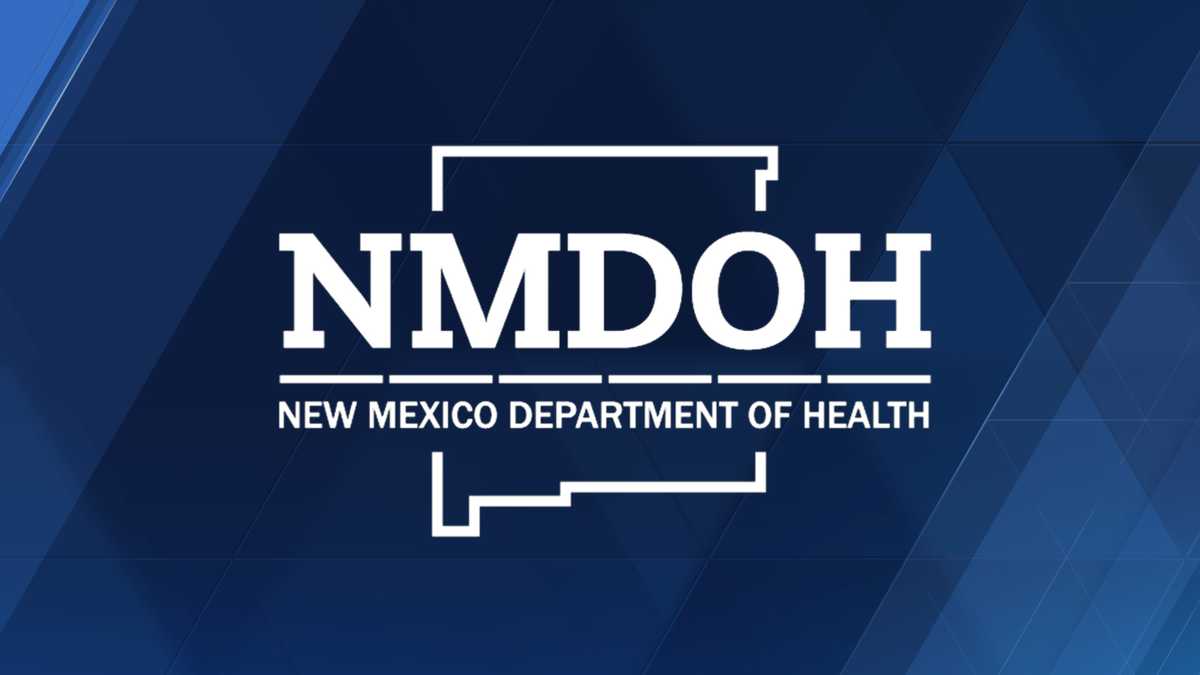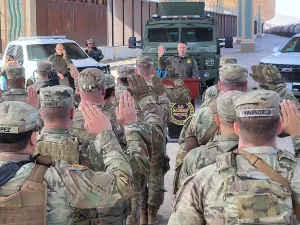-and-
New Mexico Department of Health encourages immunizations.
Source: N.M. Department of Health
Respiratory season is among us, and Respiratory Syncytial Virus immunizations are now available for older adults and pregnant people. RSV antibody is available for infants. Infants are particularly vulnerable to RSV during their first year and RSV is the leading cause of infant hospitalization in New Mexico and the United States.

RSV activity typically starts to increase in the fall and peaks around December and January.
“It’s very exciting to have RSV vaccines added to the tools we have to stay healthy during the winter,” said Dr. Miranda Durham, Chief Medical Officer for the New Mexico Department of Health (NMHealth). “Getting immunized now will reduce the chances of having severe disease that could result in hospitalization or death.”
There are two ways to protect infants from RSV:
- Maternal RSV vaccine (Abrysvo) is recommended to people who are 32-36 weeks pregnant during September-January. Maternal antibodies protect newborns against RSV for approximately 6 months after birth.
- Infants born during RSV season (October-March) without protection from maternal vaccination should receive RSV antibody (Nirsevimab or Beyfortus) within one week of birth. And babies younger than eight months old whose mother did not get an RSV vaccine during pregnancy should get an RSV antibody. It provides immediate protection against RSV and lasts at least five months.
-and-
Nirsevimab is also recommended for children eight-to-19 months old who meet any of the following criteria:
• Born premature with chronic lung disease.
• Severely immunocompromised.
• Severe cystic fibrosis.
• American Indians and Alaskan Natives.
For these high-risk children, Nirsevimab should be administered immediately. Data from the last respiratory season shows that Nirsevimab was 80-90% effective in preventing babies from being hospitalized with RSV. No shortages of Nirsevimab are anticipated this year.
Older New Mexicans are also at high risk of severe RSV. RSV vaccine is recommended for persons 75 years and older and for persons 60 years and older with chronic medical conditions. RSV vaccine for older adults can be given any time and only one dose is currently recommended. If you received an RSV vaccine last year, you do not need to get another one at this time.
RSV vaccines are offered in many locations, including healthcare provider offices, pharmacies and hospitals. NMHealth encourages those with health insurance to contact their healthcare provider or pharmacist about getting immunized against RSV. NMHealth offers vaccinations for people without insurance or who are otherwise not able to get vaccinated.
Nirsevimab is covered by the federal Vaccines for Children program, so all children in New Mexico, regardless of insurance status, can receive it.
Patients can find a location with available RSV vaccine here:
- Vaccines.gov – Search for vaccine locations
- Vaccines for Children providers in NM
- Vaccines for adults without insurance
Anyone who needs help finding a vaccine or has questions about the vaccine can call the NMHealth Help Line at 1-833-796-8773 (1-833-SWNURSE).





